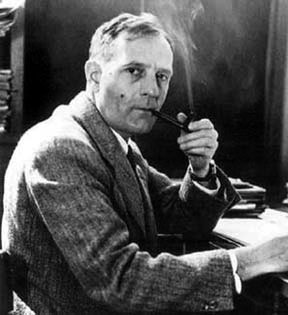 |
 |
 |
 |
 |
 |
 |
 |
 |
 |
 |
 |
|
Alumni
|
Alumni: Edwin P. Hubble, 1917 Ph.D., University of Chicago, 1917 November 20, 1889 - September 28, 1953 Edwin Powell Hubble was an astronomer who played a crucial role in establishing the field of extragalactic astronomy and is generally regarded as one of the most important observational cosmologists of the 20th century. Hubble is known for showing that the recessional velocity of a galaxy increases with its distance from the earth, implying the universe is expanding. His studies at the University of Chicago were concentrated on mathematics, astronomy and philosophy, which led to a bachelor of science degree in 1910. Hubble also became a member of the Kappa Sigma Fraternity (and in 1948 was named the Kappa Sigma ''Man of the Year''). He spent the three years at The Queen's College, Oxford after earning his bachelors as one of the university's first Rhodes Scholars, initially studying jurisprudence instead of science (as a promise to his dying father), and later added literature and Spanish, and earning his master's degree. He taught Spanish, physics, and mathematics at the New Albany High School in New Albany, Indiana for a year before he resolved to start over, at the age of 25, to become a professional astronomer. He also coached the boys' basketball team there. After a year of high-school teaching, he entered graduate school with the help of his former professor from the University of Chicago to study astronomy at the Yerkes Observatory of the University, where he received his PhD in 1917. His dissertation was titled Photographic Investigations of Faint Nebulae. |

